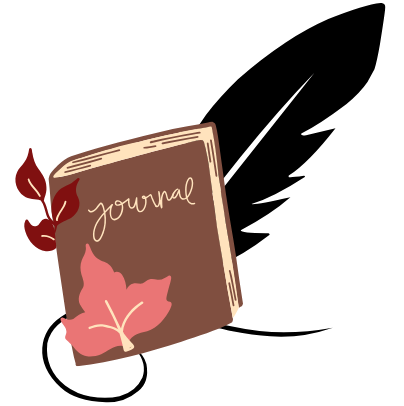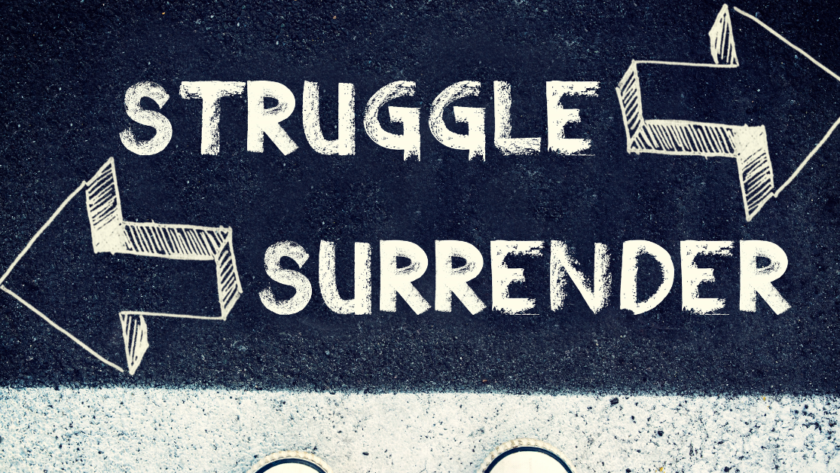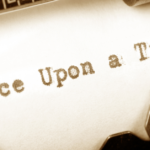Many aspiring writers dream of a life filled with inspiration, accolades, and financial success. However, the reality behind beloved works of literature is far more complex and often fraught with personal struggles.
From mental health issues to financial hardships, famous writers throughout history have faced many challenges that have both hindered and shaped their literary output.
Let’s explore the often-overlooked struggles of some of the world’s most renowned authors.
The Burden of Mental Illness
Mental illness is one of the most prevalent struggles among famous writers. The link between creativity and mental health issues has long fascinated researchers and readers alike.
Many renowned authors have battled depression, anxiety, and other mental health conditions throughout their careers.
Ernest Hemingway
Ernest Hemingway, the Nobel Prize-winning author known for his terse prose and adventurous lifestyle, struggled with depression and alcoholism for much of his life. His mental health deteriorated in his later years, leading to electroconvulsive therapy treatments and, ultimately, his suicide in 1961.
Hemingway’s struggles with mental health are evident in many of his works, particularly in the themes of disillusionment and loss that permeate his writing.
In “The Old Man and the Sea,” Hemingway’s protagonist, Santiago, embodies the author’s own battle with depression. The old fisherman’s perseverance in the face of seemingly insurmountable odds mirrors Hemingway’s own struggle to maintain his creativity and zest for life while grappling with mental illness.
The novel’s themes of resilience and the human spirit’s indomitability reflect Hemingway’s personal fight against his inner demons.
Virginia Woolf
Virginia Woolf, a pioneering modernist writer, suffered from what is now believed to have been bipolar disorder. Her periods of intense creativity were often followed by debilitating depressive episodes.
Woolf’s mental health struggles are poignantly reflected in her novel “Mrs. Dalloway” and her essay “A Room of One’s Own.”
In “Mrs. Dalloway,” Woolf explores the inner workings of her characters’ minds, particularly those of Clarissa Dalloway and Septimus Warren Smith. Through Septimus, a war veteran suffering from what we now recognize as PTSD, Woolf provides a haunting portrayal of mental illness and it’s devastating effects.
The novel’s stream-of-consciousness style mirrors the fragmented and often chaotic nature of Woolf’s own thoughts during her manic and depressive episodes.
Tragically, Woolf took her own life in 1941 during a severe depressive episode. Her suicide note to her husband, Leonard, is a heartbreaking testament to the toll that mental illness took on her life and work: “I feel certain that I am going mad again. I feel we can’t go through another of those terrible times. And I shan’t recover this time.”
Sylvia Plath
Sylvia Plath, whose confessional poetry and novel “The Bell Jar” have become iconic works of 20th-century literature, battled depression throughout her life. Her struggles with mental illness are vividly portrayed in her writing, offering readers a raw and unflinching look at the experience of living with depression.
“The Bell Jar,” Plath’s semi-autobiographical novel, provides a harrowing account of a young woman’s descent into mental illness. The protagonist, Esther Greenwood, grapples with depression, suicidal thoughts, and the societal pressures placed on women in the 1950s.
Plath’s vivid descriptions of Esther’s mental state draw heavily from her own experiences with depression and attempted suicide.
Plath’s life was cut short when she died by suicide at the age of 30. Her poem “Lady Lazarus,” written shortly before her death, is a powerful and disturbing exploration of her many suicide attempts and her complex relationship with death: “Dying / Is an art, like everything else. / I do it exceptionally well.”
The Battle of the Bottle: Substance Abuse and Creativity
The relationship between substance abuse and creativity is another recurring theme in the lives of many famous writers. While some authors have claimed that drugs or alcohol enhanced their creative processes, the long-term effects of substance abuse have often been devastating.
F. Scott Fitzgerald
F. Scott Fitzgerald, author of “The Great Gatsby,” struggled with alcoholism throughout his career.
His drinking affected his health, writing output, and personal relationships.
Fitzgerald’s battle with alcoholism is reflected in many of his works, particularly in the character of Dick Diver in “Tender Is the Night.”
Fitzgerald’s alcoholism took a severe toll on his writing career. In the later years of his life, he struggled to finish projects and maintain the quality of his earlier work.
His essay “The Crack-Up,” published in Esquire magazine in 1936, is a brutally honest account of his personal and professional decline because of alcoholism.
In “The Great Gatsby,” Fitzgerald’s most famous work, alcohol plays a central role in the decadent lifestyle of the characters. The lavish parties thrown by Jay Gatsby are fueled by illegal alcohol during the Prohibition era, reflecting the author’s own experiences in the “Roaring Twenties.” The destructive power of alcohol is also evident in the character of Tom Buchanan, whose drunken behavior leads to violence and tragedy.
Stephen King
Stephen King, one of the most prolific and successful authors of the 20th and 21st centuries, battled drug and alcohol addiction during the early years of his career. King has been open about how his substance abuse affected his writing and personal life, even admitting that he can barely remember writing some of his novels from that period.
In his memoir “On Writing,” King describes his addiction and it’s impact on his work: “The idea that creative endeavor and mind-altering substances are entwined is one of the great pop-intellectual myths of our time… Substance abusing writers are just substance abusers — common garden variety drunks and druggies, in other words. Any claims that the drugs and alcohol are necessary to dull a finer sensibility are just the usual self-serving bullshit.”
King’s journey to sobriety has since become an integral part of his personal narrative and has influenced his later works. His novel “The Shining,” which deals with an alcoholic writer’s descent into madness, draws heavily from King’s own struggles with addiction.
The protagonist, Jack Torrance, battles his own demons while isolated in the Overlook Hotel, mirroring King’s own experiences of writing while under the influence.
Charles Bukowski
Charles Bukowski, the German-American writer known for his gritty, realistic portrayals of American low life, had a notorious reputation for heavy drinking. Alcohol played a central role in both his life and his work, with many of his stories and poems revolving around drinking and bar culture.
Bukowski’s semi-autobiographical novel “Post Office” depicts the life of Henry Chinaski, the author’s alter ego, who struggles with alcoholism while working menial jobs. The raw, unfiltered style of Bukowski’s writing often reflects the hazy, alcohol-fueled perspective of his characters.
While Bukowski’s relationship with alcohol was complex, he was aware of it’s destructive potential. In a letter to a friend, he wrote, “Drinking is an emotional thing. It joggles you out of the standardism of everyday life, out of everything being the same. It yanks you out of your body and your mind and throws you against the wall. I have the feeling that drinking is a form of suicide where you’re allowed to return to life and begin all over the next day.”
From Rags to Riches: Financial Hardships and the Struggle for Recognition
Many famous writers have faced significant financial difficulties, especially in the early stages of their careers. The challenge of making ends meet while pursuing their craft has been a common experience for authors throughout history.
J.K. Rowling
J.K. Rowling, now one of the wealthiest authors in the world, wrote the first Harry Potter book while living on welfare as a single mother.
Her rags-to-riches story has become legendary in the publishing world, but it highlights the financial precarity that many writers face.
In her 2008 Harvard commencement speech, Rowling reflected on this difficult period in her life: “An exceptionally short-lived marriage had imploded, and I was jobless, a lone parent, and as poor as it is possible to be in modern Britain, without being homeless… By every usual standard, I was the biggest failure I knew.”
Despite these challenges, Rowling persevered, writing in cafes while her daughter slept in a stroller beside her. The success of the Harry Potter series transformed Rowling’s life and revolutionized children’s literature and the publishing industry as a whole.
Edgar Allan Poe
Edgar Allan Poe, despite his current status as one of the most influential American writers, struggled financially throughout his life. He often had to rely on loans and advances from publishers to survive, and his financial troubles were exacerbated by his struggles with alcohol and gambling.
Poe’s financial difficulties were compounded by the lack of international copyright laws at the time, which meant that his works were often reprinted without his permission or compensation. This situation led Poe to advocate for copyright reform, arguing for the rights of authors to benefit from their intellectual property.
The impact of Poe’s financial struggles is evident in many of his works. “The Raven,” one of his most famous poems, explores themes of loss and despair that may have been influenced by his own experiences of poverty and hardship.
Similarly, his short story “The Gold-Bug” reflects his desperate search for financial security, with it’s plot revolving around the hunt for buried treasure.
George Orwell
George Orwell, author of “1984” and “Animal Farm,” faced significant financial hardships early in his career. Before achieving literary success, Orwell lived in poverty in Paris and London, experiences he later documented in his memoir “Down and Out in Paris and London.”
Orwell’s time living among the poor and working class deeply influenced his political views and his writing. His essay “How the Poor Die,” based on his experiences in a Paris hospital, provides a scathing critique of the treatment of the poor in society.
Similarly, his novel “Keep the Aspidistra Flying” explores the struggles of a young writer trying to maintain his artistic integrity while facing financial pressures.
Even after achieving some success with the publication of “Animal Farm,” Orwell continued to live modestly. He used much of his income to support causes he believed in, including helping to resettle Jewish refugees during World War II.
The Pen as a Weapon: Political Persecution and Censorship
Many writers have faced political persecution and censorship, which have profoundly impacted their lives and work. The struggle against oppressive regimes and the fight for freedom of expression have shaped some of the most powerful works of literature.
George Orwell
George Orwell’s experiences during the Spanish Civil War and his observations of totalitarian regimes deeply affected his political views and informed his most famous works. “Animal Farm” and “1984” serve as powerful critiques of authoritarianism and censorship.
Orwell’s time fighting with the Republican forces in Spain exposed him to the realities of political propaganda and the manipulation of truth by those in power.
This experience directly influenced the themes of “1984,” particularly the concept of “doublethink” and the manipulation of language for political purposes.
In “1984,” Orwell creates a dystopian world where the government controls every aspect of citizens’ lives, including their thoughts.
Aleksandr Solzhenitsyn
In the Soviet Union, writers faced strict censorship and the threat of persecution. This led to the creation of “samizdat,” a system of clandestine copying and distribution of banned literature.
Many Soviet writers, such as Aleksandr Solzhenitsyn, faced severe consequences for their work, including exile and imprisonment.
Solzhenitsyn’s experiences in the Soviet Gulag system formed the basis for his most famous work, “The Gulag Archipelago.”
This monumental expose of the Soviet forced labor camp system was initially published abroad and circulated secretly within the Soviet Union through samizdat networks.
The publication of “The Gulag Archipelago” led to Solzhenitsyn’s arrest and expulsion from the Soviet Union in 1974. He spent the next 20 years in exile, continuing to write and speak out against the Soviet regime.
His works played a significant role in exposing the realities of life under Soviet rule to the Western world.
Salman Rushdie
Salman Rushdie’s novel “The Satanic Verses” sparked international controversy upon it’s publication in 1988.
The book’s perceived blasphemous content led to it’s banning in several countries and resulted in a fatwa calling for Rushdie’s death issued by Iran’s Ayatollah Khomeini.
Rushdie was forced into hiding for nearly a decade, living under constant police protection. Despite the threat to his life, Rushdie continued to write and speak out against censorship and in defense of freedom of expression.
In his memoir “Joseph Anton,” Rushdie reflects on this period of his life and the impact it had on his writing: “To write is to risk being misunderstood, but not to write is to guarantee it.”
The experience of living under threat has informed much of Rushdie’s subsequent work, including themes of exile, identity, and the power of storytelling.
The Weight of Success: The Pressure of Fame and Expectations
For some writers, achieving success brings it’s own set of challenges. The pressure to produce another bestseller or to live up to the expectations of critics and readers can be overwhelming.
Harper Lee
Harper Lee, author of the Pulitzer Prize-winning novel “To Kill a Mockingbird,” struggled with the immense pressure and attention that came with her success.
She did not publish another novel for 55 years, and when “Go Set a Watchman” was released in 2015, it was met with controversy and mixed reviews.
The enormous success of “To Kill a Mockingbird” created intense expectations for Lee’s future work. In a rare interview in 1964, Lee said, “I have said what I wanted to say, and I will not say it again.”
This statement hints at the pressure she felt to produce another work of similar impact and quality.
The publication of “Go Set a Watchman” in 2015 was surrounded by controversy, with questions raised about Lee’s involvement in the decision to publish and the book’s relationship to “To Kill a Mockingbird.”
The mixed reception of the book highlighted the challenges faced by authors who achieve early, monumental success.
J.D. Salinger
J.D. Salinger, author of “The Catcher in the Rye,” famously retreated from public life after the enormous success of his novel.
He stopped publishing new work in 1965 and became increasingly reclusive, rarely granting interviews or making public appearances.
The pressure of fame and the intense scrutiny of his work seemed to overwhelm Salinger. In a rare interview in 1974, he said, “There is a marvelous peace in not publishing… I like to write. I love to write. But I write just for myself and my own pleasure.”
Salinger’s retreat from public life and his decision to stop publishing new work have become almost as famous as his writing itself.
His story serves as a cautionary tale about the potential pitfalls of literary fame and the pressure it can place on writers.
Donna Tartt
Donna Tartt, author of “The Secret History” and “The Goldfinch,” is known for taking about a decade between publishing each of her novels.
This long gestation period has led to intense anticipation and scrutiny of each new work.
Tartt has spoken about the pressure she feels to produce high-quality work, saying in an interview, “I would rather never publish another book than publish a bad book.” This commitment to quality over quantity has resulted in a small but highly acclaimed body of work.
However, the long gaps between publications have also led to intense speculation and pressure from fans and the publishing industry.
Tartt’s experience highlights the challenges faced by authors who achieve critical acclaim early in their careers and the expectations that come with such success.
The Juggling Act: Balancing Art and Life
Many writers have grappled with the challenge of balancing their artistic pursuits with the demands of everyday life.
This struggle is particularly evident in the lives of women writers who have had to navigate societal expectations and family responsibilities alongside their writing careers.
Toni Morrison
Toni Morrison, the Nobel Prize-winning author, wrote her first novel, “The Bluest Eye,” while working full-time as an editor and raising two children as a single mother.
Her ability to carve out time for her writing while managing her other responsibilities is a testament to her dedication and resilience.
In interviews, Morrison has spoken about the challenges of balancing her writing with her other responsibilities.
She often wrote in the early morning hours before her children woke up, describing this time as “that dark time before dawn, before the obligations of the day have begun.”
Morrison’s experiences as a working mother informed much of her writing, particularly her exploration of motherhood and family dynamics in novels like “Beloved” and “Song of Solomon.”
Her ability to balance her various roles while producing cutting-edge literature has made her an inspiration to many aspiring writers.
Ursula K. Le Guin
Ursula K. Le Guin, the acclaimed science fiction and fantasy author, balanced her writing career with raising three children.
Le Guin often spoke about the challenges of finding time to write while managing family responsibilities.
In her essay “The Hand That Rocks the Cradle Writes the Book,” Le Guin talks the myth of the writer needing uninterrupted time to create: “The idea that you need an ‘ivory tower’ to write in, a secluded place, a quiet place, is for people who don’t have children.”
Le Guin’s ability to create rich, complex worlds and tackle profound philosophical questions in her writing while also managing a household shows the power of determination and time management in a writer’s life.
Virginia Woolf
Virginia Woolf’s essay “A Room of One’s Own” famously argues for the importance of women having their own space and financial independence to pursue writing.
Woolf’s own experiences as a woman writer in the early 20th century informed this perspective.
Despite coming from a privileged background, Woolf faced societal expectations about women’s roles that often conflicted with her writing ambitions.
Her struggles with mental health were exacerbated by the pressure to conform to these expectations while also pursuing her artistic goals.
Woolf’s work often explores the tension between societal expectations and personal ambition, particularly for women. Her novel “Mrs. Dalloway” explores the inner life of a woman balancing her social obligations with her own wants and reflections.
The Legacy of Struggle
The struggles of famous writers have shaped their personal works and contributed to our understanding of the human experience.
As readers, we are the beneficiaries of these struggles, gaining insight into the depths of human emotion and experience through the words of those who have grappled with life’s most difficult challenges.
The next time we open a beloved book, we might pause to consider the hidden battles that may have been fought to bring those words to the page.
The resilience and dedication of these writers have produced timeless works of literature but have also expanded our understanding of the creative process and the human condition.
From mental health struggles to financial hardships, from political persecution to the pressures of success, the challenges faced by famous writers remind us that great art often emerges from great difficulty.
Their stories serve as both inspiration and cautionary tales, highlighting the complex relationship between creativity, personal struggle, and societal pressures.
As we continue to celebrate and study these literary giants, it’s crucial to remember the human beings behind the words – individuals who, despite their extraordinary talents, grappled with many of the same challenges and doubts that we all face.
Their ability to transform their struggles into art continues to enrich our lives and our understanding of the world around us.
Frequently Asked Questions
How does mental illness affect writing?
Mental illness can profoundly impact a writer’s work, often influencing themes, style, and productivity. Some writers find that their experiences with mental health issues provide unique insights and perspectives that enrich their writing.
However, severe mental health problems can also hinder creativity and make the writing process more challenging.
Can substance abuse enhance creativity in writing?
While some writers have claimed that substance use enhances their creativity, the long-term effects of substance abuse are generally detrimental to both health and artistic output. Many writers who have struggled with addiction have found that sobriety ultimately improves their work and overall well-being.
How do writers balance their creative work with financial stability?
Many writers struggle to balance their artistic pursuits with financial stability, especially early in their careers. Some take on day jobs or freelance work to support themselves while writing, while others may rely on grants, fellowships, or support from family and friends.
Successful writers often advise aspiring authors to develop a sustainable financial plan alongside their writing goals.
What impact does censorship have on literature?
Censorship can have a significant impact on literature, often leading to the suppression of important voices and ideas. However, it can also inspire writers to find creative ways to express their thoughts and criticisms, sometimes resulting in powerful allegorical or symbolic works that bypass censors while still conveying their message.
How do successful writers deal with pressure and expectations?
Successful writers often develop strategies to manage the pressure and expectations that come with fame. These may include setting boundaries with the public and media, maintaining a regular writing routine, and focusing on the work itself as opposed to external expectations.
Some writers choose to step away from the public eye to protect their creative process.
Is it possible to have a successful writing career while raising a family?
Many successful writers have balanced their careers with family responsibilities. This often requires careful time management, dedication, and support from family members or other caregivers.
Some writers find that their family experiences enrich their work, while others struggle to find uninterrupted writing time.
How has the digital age affected writers’ struggles?
The digital age has brought new challenges and opportunities for writers. While it has made self-publishing and reaching audiences easier, it has also increased competition and pressure to maintain an online presence.
Additionally, the constant connectivity of the digital world can make it harder for writers to find the solitude and focus they need for their work.
What role does education play in a writer’s success?
While formal education in writing or literature can be useful, many successful writers have come from diverse educational backgrounds. What’s often more important is a commitment to reading widely, practicing regularly, and being open to feedback and continuous learning.
How do writers overcome writer’s block?
Writers use various strategies to overcome writer’s block, including establishing regular writing routines, setting achievable goals, changing their writing environment, or taking breaks to engage in other creative activities. Some find that free writing or working on many projects simultaneously helps maintain creativity and productivity.
What impact does criticism have on writers?
Criticism can have a significant impact on writers, both positive and negative. Constructive criticism can help writers improve their craft, while harsh or unfair criticism can be discouraging.
Many successful writers learn to develop a thick skin and to focus on feedback that is genuinely helpful to their growth as artists.
Key Takeaways
- Mental illness is a common struggle among famous writers, often influencing their work in profound ways.
- Substance abuse has affected many authors, sometimes enhancing creativity but often leading to devastating consequences.
- Financial hardships are a frequent challenge, especially in the early stages of a writer’s career.
- Political persecution and censorship have shaped the lives and works of many influential authors.
- Success can bring it’s own set of challenges, including pressure to maintain high standards and meet expectations.
- Balancing writing with personal life and responsibilities is an ongoing struggle for many authors.
- The struggles faced by famous writers have often resulted in powerful, enduring works of literature that provide deep insights into the human experience.




